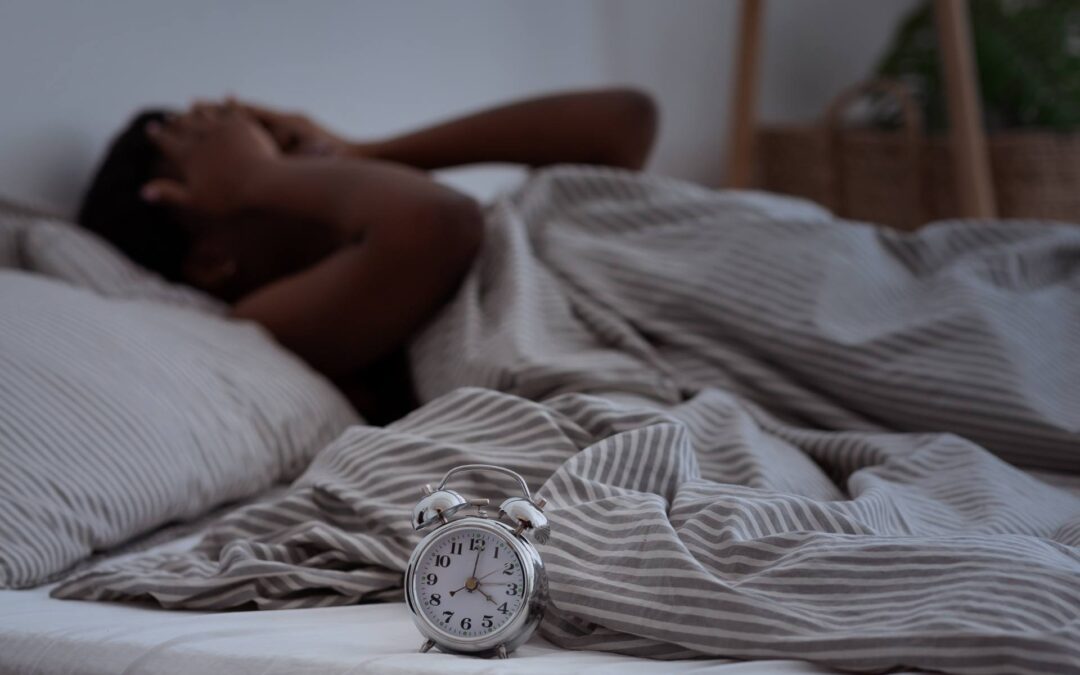I remember the nights all too well. Lying in bed, staring at the ceiling, my mind racing with worries about work, relationships, and everything in between. The more I tried to sleep, the more anxious I became about not sleeping. It was a vicious cycle that left me exhausted, irritable, and even more anxious during the day. If you’re reading this, chances are you’ve experienced something similar. The connection between anxiety and sleep is real, and it can be devastating. But I’m here to tell you that there’s hope, and therapy can be a game-changer.
Anxiety-Sleep Struggle
For years, I thought I was just a “bad sleeper.” I’d toss and turn for hours, finally drift off, only to wake up in a panic at 3 AM. During the day, I’d drag myself through work, fueled by too much coffee and constant worry about the next sleepless night. It wasn’t until I started therapy that I realized how deeply intertwined my anxiety and sleep issues were.
The Anxiety-Sleep Connection
Here’s what I’ve learned: anxiety and sleep problems are like two bullies that team up against you. Anxiety makes it hard to fall asleep and stay asleep. When you’re anxious, your mind is in a state of hyperarousal, making it nearly impossible to relax and drift off and when you don’t get enough sleep, your brain’s emotional center becomes more reactive, making you more prone to anxiety the next day, it’s a self-reinforcing cycle that can feel impossible to break.
How Therapy Changed the Game
Seeking therapy was one of the best decisions I’ve ever made for my sleep and overall well-being. Here’s how it helped:
1. Cognitive Behavioral Therapy (CBT)
CBT was a game-changer for me. It helped me identify and challenge the negative thought patterns that were fueling my anxiety and keeping me awake at night.
For example, I learned to question catastrophic thoughts like, “If I don’t sleep well tonight, I’ll mess up my presentation and get fired.” Through CBT, I developed more realistic and balanced thinking, which significantly reduced my nighttime anxiety.
2. Sleep Hygiene Education
My therapist provided valuable education on sleep hygiene. I learned about the importance of creating a sleep-friendly environment, avoiding screens before bed, and establishing a consistent sleep schedule
These simple changes made a big difference in my sleep quality.
3. Relaxation Techniques
I was introduced to mindfulness meditation and progressive muscle relaxation. These techniques helped me calm my racing thoughts and relax my body before bed
I remember the first time I successfully used deep breathing exercises to fall asleep – it felt like a miracle!
4. Addressing Underlying Issues
Through therapy, I discovered that some of my anxiety stemmed from unresolved issues from my past. Working through these helped reduce my overall anxiety levels, which in turn improved my sleep.
Anxiety Toolkit
Based on what I learned in therapy, I developed a personal toolkit for managing my sleep and anxiety. Here are some strategies that have worked for me:
Consistent sleep schedule: I go to bed and wake up at the same time every day, even on weekends
Daylight exposure: I make sure to get at least 30 minutes of daylight each day, which helps regulate my sleep-wake cycle
Exercise: I’ve made regular exercise a priority, but I make sure to finish at least 3 hours before bedtime
Caffeine cutoff: I stop all caffeine intake by 2 PM
Bedtime routine: I have a relaxing routine that includes reading, gentle stretching, and a few minutes of meditation.
Worry time: I schedule a specific “worry time” during the day to address my anxieties, so they’re less likely to pop up at bedtime.
Sleep environment: I’ve made my bedroom a sleep sanctuary – cool, dark, and quiet
The Ongoing Journey
I won’t lie – it wasn’t an overnight fix. There were setbacks and nights where anxiety still got the better of me. But with consistent practice and the support of my therapist, I saw gradual improvements. Now, often, I fall asleep easily and wake up feeling refreshed. What I’ve learned is that good sleep isn’t just about the nighttime hours. It’s about how you live your entire day. Managing anxiety, practicing good sleep hygiene, and addressing underlying issues all contribute to better sleep.
You’re Not Alone
If you’re struggling with anxiety and sleep issues, know that you’re not alone. According to research, about 24% to 36% of people with insomnia also have an anxiety disorder
It’s a common problem, but it’s also a treatable one. Don’t be afraid to seek help. A mental health professional can provide personalized strategies and support. Remember, investing in your sleep is investing in your overall health and well-being. As someone who’s been through the anxiety-sleep struggle, I can tell you that things can get better. With the right support and tools, you can break the cycle of anxiety and poor sleep. Here’s to peaceful nights and calmer days ahead. Sweet dreams!

